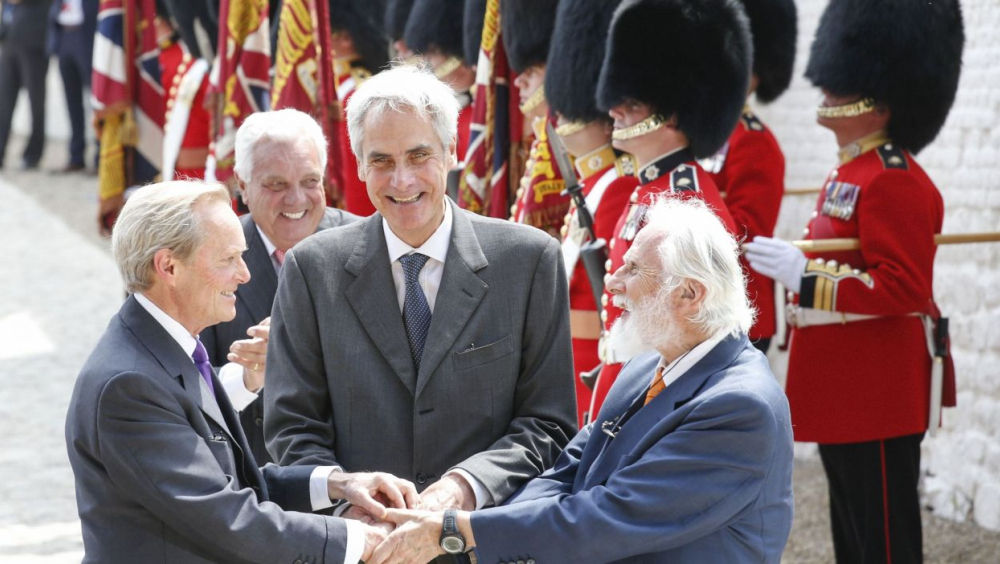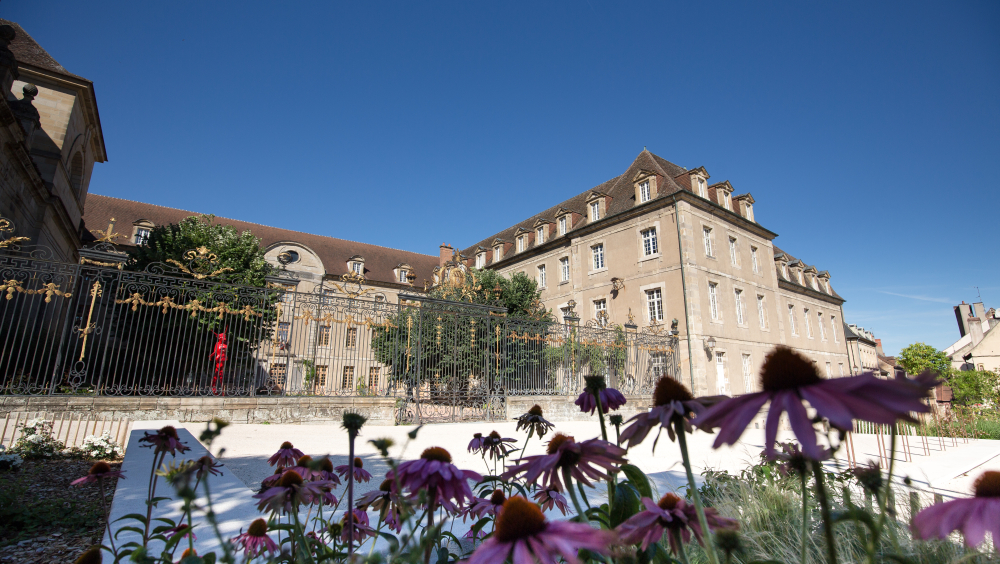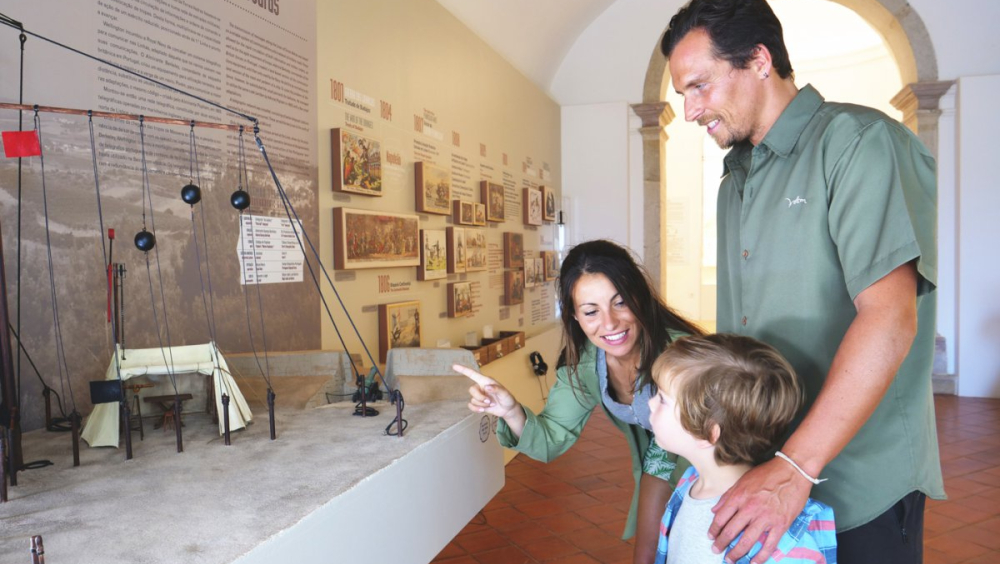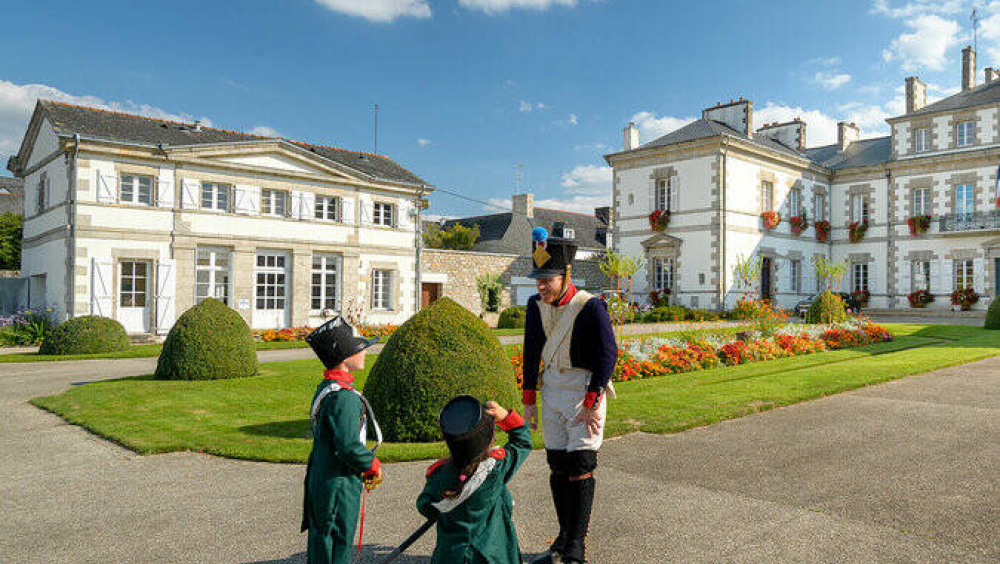Overview
Destination Napoleon draws its originality and richness from its continental dimension, its geographical and administrative diversity and, certainly, its historical, cultural and heritage breadth. This analysis of the Napoleonic era highlights the rise of the Civil Code, sovereign nations and republics in the various territories influenced or conquered by Napoleon.
The Route brings together different perspectives on this shared page from our past, differences that enrich us all. For our towns, Napoleon was sometimes a builder, sometimes a legislator, an administrator, a conqueror, or a defeated enemy. Sometimes all of these in succession. The result is a wide range of assessments, illustrating the richness and complexity of his work and creating a fascinating object of contemporary culture.
We therefore need to take into account both the historical truth, which is of course inescapable, but also respond to the diversity of expectations, practices and contexts by country and within each country, by territory. It is not enough to follow in the footsteps of the great campaigns or to place commemorative markers on the battlefields, we also need to take account of what the legacy of the Napoleonic period has left to each of the nations involved and to the construction of Europe. The cultural route thus gives substance to the various aspects surrounding Napoleon and his myth, which is still very much alive in Europe and around the world.
We also want to highlight this heritage so that it continues to create meaning and wealth for our contemporaries. We know that it is through a sound knowledge and appreciation of the contributions of history that Europe's citizens will be better equipped to face the challenges of modern times. Napoleon, one of the world's best-known historical figures, is a key gateway to the whole of Europe's heritage, far beyond Napoleon's alone.
At the European level, the Destination Napoleon Cultural Route promotes the multiperspective storytelling of Napoleon and his time, by comparing different perspectives on historical events, marking our Continent and, often, the world.
The Destination Napoleon website collects the initiatives and events organised by the members of the Route and by museums and universities to underline the fundamental contribution of Napoleon to nowadays Europe.
Each member has the role of a mosaic tile, and proposes a local itinerary explaining the role of the territory and cities in the European Napoleonic epic, describing the important sites, and museums, along with local anecdotes and stories on this important European figure.
Every year, Destination Napoleon Route proposes a theme to be developed by members, at the local level.
After the 2021 bicentenary, Destination Napoleon explored “Napoleon and Urbanism in 19th century”, “Napoleon and botany: between science and landscaping”, and this year the theme selected is “Napoleon, food and wine, art of the table”. The theme of the year is explored also through an online exhibition prepared with Europeana.
This year, wine-tasting and presentations about Napoleon influences on food will be proposed in the member cities, underlining the importance of gastronomy as part of intangible heritage.
In France, the City of Autun will open the Lycée Bonaparte, where Napoleon studied when he was young, and a concert will be organised to bring back to life a number of music pieces composed for the coronation of Napoleon as king of Italy, and discovered in the archive of the Music Conservatory of Milano, creating a twinning between Milano and Autun.
A cruise will be organised from Marseille to Ajaccio, involving an historian presenting his book on Napoleon and discovering the main important places where Napoleon lived, in particular his birthplace and family house, the Fesch museum, the Naporama Museum and interpretation center, and a special Napoleonic menu will be proposed to visitors.
Calvi and Corte municipalities, in Corsica, propose thematic visits of their urban treasures, linked to Napoleon.
The multi-epoch camp organised by Coudekerque-Branche (France) at the Vernaelde proposes among the activities focusing on Napoleon time, from the Revolution to the 1st Empire, workshops on soldiers' uniforms, presentation of the military strategy, presentation of the construction of a bridge, manoeuvre demonstration, learning about calligraphy, the soldier's meals and daily life. This event is an important educational and recreational moment for the region, welcoming about 2,400 pupils from CE1 to 5e, i.e. approximately 100 classes from 30 schools in the region.
Among the museums working with Destination Napoleon, the National Museum of the Châteaux of Malmaison and Bois-Préau in Rueil-Malmaison also propose thematic exhibitions and visits, as well as special activities for kids co-organised with the local tourism office.
In Pontivy we discover that it's possible to teach children about the French Revolution, Napoleon I and Napoleon III in a fun way! During the guided family tour proposed by the tourism office, the guide and children are dressed in Napoleonic costume. The historical explanations, as well as the introduction to fencing and dancing of the period, will give them a fun way to discover the 19th century.
In Paris the Napoleon history is everywhere, and can be better discovered in the urban spaces as well as in the Musée de l’Armée and in the Musée Carnavalet. The Napoleon Institute of Sorbonne University proposes in cooperation with the FECN-Destination Napoelon a conference in June 2024 about the role of museums and battlefields in the European storytelling of Napoleonic times.
La Roche-sur-Yon and Montereau-Fault-Yonne also organises thematic visits and conferences.
In Portugal, the association of Rota Historica de Linas de Torres proposes different activities for discovering the French Invasions and the local heritage, through interpretation centers along the walking paths retracing the defensive lines. In Spain, Vitoria Gasteiz, in the Basque countries, works on the pretation of the battlefield, and Aranjuez, close to Madrid, working with the pupils of local schools in the digitalisation of Napoleonic urban heritage, together with Europeana.
In Belgium, Sombreffe, and Fleurus proposes the discovery of the Napoleon Route in Wallonia, that also includes the Waterloo Memorial 1815, a highly symbolic site, explaining the last battle of Napoleon using public history methods and tools.
Italian members are activley working in proposing visits, like the Town of Sarzana, the Bonaparte family is coming from.
Lucca Municipality, presents molstly Elisa, one of the sisters of Napoleon, and it is possible to rediscover the perfumes and fragrances she brought to the city walking along the urban path, that includes the plants and trees she ordered to be planted in the streets and gardens.
Elba island, and in particular Portoferraio, invites tourists and inhabitants to discover the exil of the Emperors, visiting the Napoleonic villas and the places linked to anecdotes about his presence in the islands.
In Germany, the city of Iena dedicates a 3D film at the Zeiss planetarium to Napoleon and the stars of his time, and the battlefield can today be explored and is accessible to all tanks to a special trail and an app, presenting the natural heritage as well as the historical memories connected to the Battle of Iena. Grossebieren and Hoveloff are also proposing urban paths.
Boleslawiec in Poland organises visits to the museum, where one can discover the connections between Napoleon and the city.
Croatian members reminds us the importance of the French Route, or Route Marmont, and the deep linkages between French and the former Illyrian provinces, that also included Herceg Novi, in Montenegro, where Napoleon is connected to wine production and Mimosa trees, brought thanks to the scientific exploration ordered by the French Emperor and today theme of the most important festival in the city.
Finally Plymouth, the final destination of Napoleon before is trip to St-Helena, proposes an urban itinerary designed together with the local tourism offices, following the memories of Napoleon presence in the harbour.
European Dimension
Founded in 2004 by Charles Bonaparte, the European Federation of Napoleonic Cities brings together about 50 cities in 11 Council of Europe countries whose history has been marked by Napoleonic influence.
In 2015, Destination Napoleon has been certified "Cultural Route of the Council of Europe", recognising the European work of the network.
"The dozens of towns and cities across Europe that have come together in this movement want to contribute to the promotion of their own image, by bringing to life a significant page in their history and discovering how this past was common to them all. For the Napoleonic period enabled Europe to become self-aware - both in its support for and its opposition to the actions of the little Corsican - and to adopt public institutions inspired by the philosophy of the Enlightenment. Our countries, our Europe, need to strengthen their awareness of their roots in order to increase their confidence in their ability to meet the great challenges of our time. Our desire to better understand and enhance our cultural heritage is intimately linked to our desire to move forward in terms of social and economic progress. The question of identity is at the heart of all the crises of our time. The changes in behaviour needed to meet the challenges of environmental control, the development of science and technology, underdevelopment and so on can only be brought about by peace, and therefore by reconciliation with our past. For, as the saying goes, there can be no future for those who do not accept their history. This is why we have undertaken to come together around this page of a great history that once divided us". Charles Bonaparte.



